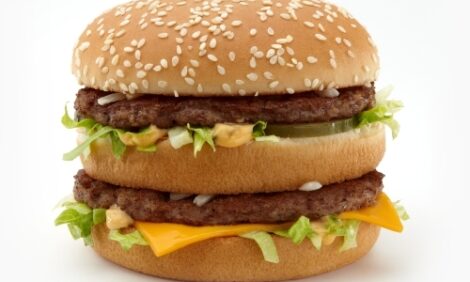



Challenging first half of year for FrieslandCampina
Declined prices, lower volumes challenging revenueThe first half of 2023 was challenging for FrieslandCampina, the company stated in a recent press release. As indicated at the start of the year in the ‘Outlook for 2023’, the economic conditions for the company deteriorated in the first six months of the year.
The milk price that FrieslandCampina paid to its member dairy farmers over the past half year was higher than the sharply declined market prices for commodity dairy products, particularly for cheese and butter. Expensive product stocks had to be sold in a declining dairy market. Furthermore, volumes declined as a result of market declines due to a loss of purchasing power and a shift in consumer spending towards private label.
The Food & Beverage and Trading business groups were hit the hardest by this. The Ingredients and Specialised Nutrition business groups on the other hand had a good start of the year, but this could not compensate the loss in profitability at the other two business groups. As a result of the above developments, net profit declined sharply in the first half of the year.
Despite the challenging circumstances, FrieslandCampina has continued to invest in the company, future growth and sustainability. In Veghel (the Netherlands), FrieslandCampina Ingredients opened a new, sustainable production facility for lactoferrin, an important, high-quality protein for infant and adult nutrition.
Furthermore, a large-scale pilot with a methane-reducing feed additive, in which almost 160 dairy farms with a total of almost 20,000 cows participated, was successfully completed. This is promising news relating to the future reduction of greenhouse gas emissions at dairy farms. The company has also refinanced maturing debts by issuing a 300 million euro Schuldschein linked to environmental, social and governance (ESG) goals. This would not have been possible without clear climate objectives and other sustainability priorities.
“The results for the first half of the year are not at the level one can expect from FrieslandCampina," said Jan Derck van Karnebeek, CEO Royal FrieslandCampina NV as of June 2023. "Improving our profitability in 2023 and beyond is therefore our top priority. That is why we have implemented short-term cost savings without jeopardizing our long-term growth prospects. In addition, we are working on refining our strategy, known as 'Expedition 2030', to structurally improve the profitability of the company, including the lower-margin product and customer segments. We look at both the revenue and the cost side of the company for this. Making FrieslandCampina more sustainable, for example by implementing our climate plan, will also be an important focus point within Expedition 2030."
For the second half of 2023, the milk price paid to the member dairy farmers and commodity dairy prices are expected to converge, the company said. As a result, losses seen in the first half of 2023 due to the difference between milk price paid to member dairy farmers and the lower market value of stocks at the time of sale are expected to have a lower impact in the second half of the year. However, volumes are expected to remain under pressure in all markets due to inflation and the loss in consumer purchasing power. Rising interest rates and unfavourable currency translation effects are also expected to negatively impact the company’s result in the second half of 2023. Finally, the company's cost structure will be reviewed which may result in restructuring costs in the second half of the year.



